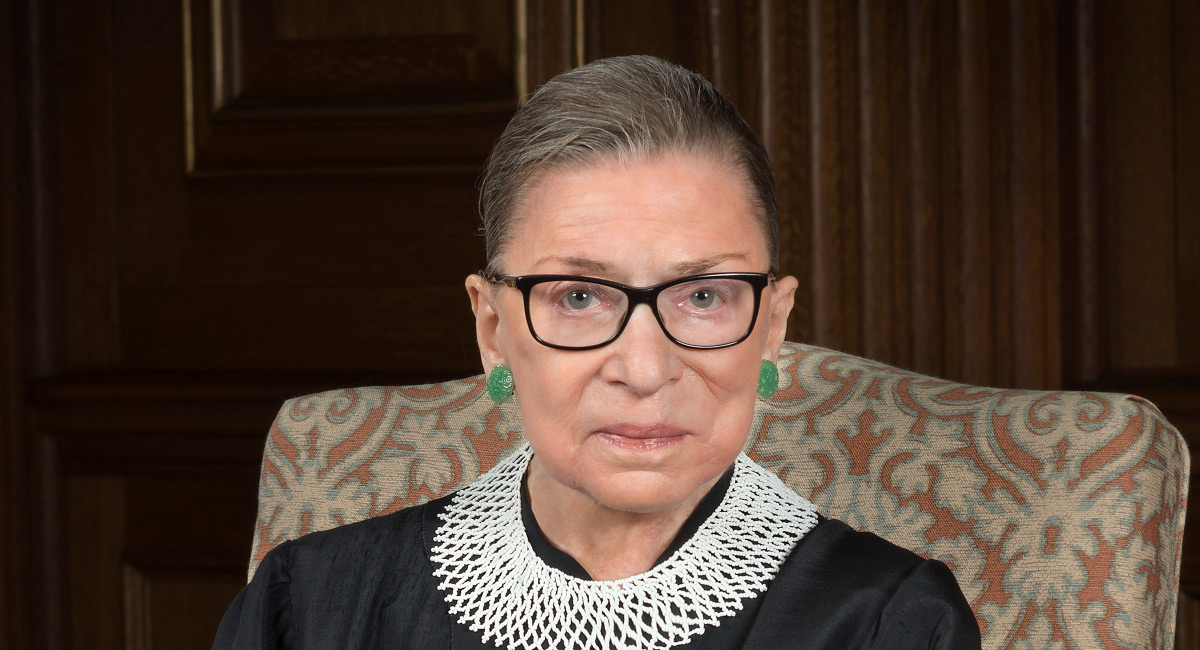The late Supreme Court Justice Antonin Scalia, on the occasion of Ruth Bader Ginsburg’s 10th anniversary on the U.S. Court of Appeals for the D.C. Circuit, referred to the diminutive jurist—who would later join him on the high court—as “the best of colleagues, as she is the best of friends. I wish her a hundred years.” The iconic Supreme Court justice fell short of that mark, passing away recently at the age of 87.
Ginsburg was as liberal as Scalia was conservative: he a constitutional originalist, she embracing the concept of a Living Constitution.
Some remember Justice Ginsburg as a trailblazer and champion of women’s rights. That may be so as “women’s rights” currently is understood, but she also was a defender of judicial power who preferred that lawyers and judges, rather than democratically elected public officials, have the last word on public policy decisions.
One of her most famous Supreme Court opinions was United States v. Virginia (1996), in which the Court sounded the death knell for state-supported, single-gender educational institutions. Ginsburg’s opinion took aim at the Virginia Military Institute (VMI), which the legislature and people of Virginia had supported as an all-men’s military academy since 1839.
Rather than acknowledging the benefits to society of such a college, whose alumni include U.S. senators, Supreme Court justices, civil rights activists, Medal of Honor recipients, and countless military leaders, including Generals George Marshall and George S. Patton, Ginsburg saw VMI as a citadel of gender discrimination that could offer no “persuasive justification” for its admission policies.
Her sweeping opinion ordered the school to admit women, constitutionalizing a presumption against public, single-gender education.
Through raw judicial power and in the name of women’s rights, Ginsburg and the Court took from the people of Virginia and their elected representatives the ability to make their own decisions about the value of VMI and whether its approach to martial education was suited to women as well as men.
Although born in the Great Depression, when family cohesiveness was necessary just to survive, Ginsburg championed some of the most radical anti-family positions of today’s cultural revolutionaries. For example, in comments from the bench in Obergefell v. Hodges (2015), Ginsburg derided the traditional Western concept of marriage as “a relationship of a dominant male to a subordinate female” and expressed support for rethinking the institution. And rethink it is exactly what the Court did.
Rejecting arguments that linked the right to marry with the need to channel potentially procreative activity into a stable social and legal relationship called marriage, the Court, with Ginsburg voting in the majority, found that restricting marriage to male–female couples was irrational and served only to impose a “stigma and injury” on homosexuals. Once again, democratic debate ceased as Ginsburg and other members of the Living Constitution faction nationalized marriage law, previously the prerogative of the states, by holding that the millennia-old definition of marriage was unconstitutional, thus removing another public policy decision from the people and their elected representatives.
Not surprisingly, Ginsburg also was a steadfast defender of Roe v. Wade (1973), the famed decision that constitutionalized (and thereby nationalized) abortion by divining a right to privacy that previously had gone undetected in the Constitution. In Whole Woman’s Health v. Hellerstedt (2016), for example, Ginsburg voted with the majority to strike down a modest Texas requirement that doctors performing abortions have admitting privileges in local hospitals and that abortion clinics meet the same minimum standards as ambulatory surgical centers.
Writing separately, Justice Ginsburg scoffed at the notion that these requirements could have any relation to promoting women’s health, characterizing them as nothing but impediments to abortion. “So long as this Court adheres to Roe v. Wade,” Ginsburg wrote, laws such as Texas’s “cannot survive judicial inspection.” Once again, Ginsburg rejected a policy crafted by the peoples’ elected representatives for a position she and a Court majority viewed as preferable.
Ginsburg attended Ivy League institutions (Cornell, Harvard, and Columbia) and lived most of her life in the New York City–Washington, D.C., bubble. Her jurisprudence was shaped by life among the elite in this bubble.
She embraced a Living Constitution that evolved as the elites demanded additional powers, always couched as “rights,” to address their ever-changing grievances and concerns—even if it meant, as it always does, nullifying the decisions of democratically elected lawmakers. For Ginsburg, activist lawyers always knew best—especially those in robes. That’s her legal legacy.












